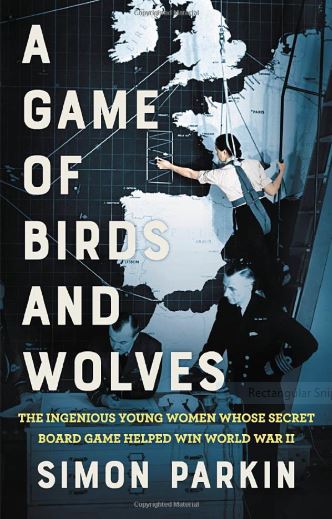- Author
- Book reviewer
- Subjects
- Naval Intelligence, History - WW2, Book reviews, Naval Engagements, Operations and Capabilities
- Tags
-
- RAN Ships
- None noted.
- Publication
- March 2020 edition of the Naval Historical Review (all rights reserved)
A Game of Birds and Wolves: The Ingenious Young Women Whose Secret Board Games Helped Win World War Two. By Simon Parkin. Hardback and paperback, 329 pages, Hachette, 2019. From booksellers and online, about $20.00.
This book is an engaging true story of the young women who helped devise the winning strategy that defeated German U-boats and delivered a decisive victory in the Battle of the Atlantic. Told in vivid, thrilling detail A Game of Birds and Wolves often reads like a thriller with well-rounded memorable characters on both sides of the conflict but is clearly based on painstaking archival research and interviews.
In 1941 Winston Churchill had come to believe that the outcome of WWII rested on the Battle of the Atlantic. Thousands of supply ships ferrying vital food and fuel from North America to Britain were being torpedoed by U-boats. Churchill concealed from the country the number of British ships sunk and the number of seamen killed. He feared Britain would eventually be starved into surrender by the Germans.

A grand strategy game was devised by Captain Gilbert Roberts, CBE, RN, and a group of women from the Women’s Royal Naval Service (WRNS) in an attempt to discover and understand the tactics behind the vicious success of the German U-boats. Played in Derby House in Liverpool on a linoleum floor divided into painted squares, it required model ships to be moved across a make-believe ocean in a manner reminiscent of the childhood game Battleship. Through play the designers developed Operation Rasp-berry, a counter manoeuvre that helped turn the tide of WWII. All WRNS assigned to the unit were required to sign the Official Secrets Act.
I have been particularly interested in the gestation of this book, as my mother, Liz Drake, a Second Officer in the WRNS, was appointed to the unit when it was set up in 1941. She was recruited by an Australian working in Britain, Chief Officer Nancy Osborne, sister of my father Commander Fred Osborne CMG, DSC and Bar, VRD, RANVR who was one of the Australians commanding various escort ships in the Atlantic. Naval officers would go ashore when in Liverpool to attend the tactical school that developed out of the strategy game. He ended up teaching there for a few months, which is where he met my mother. They married in 1944 and in 1946 she sailed to Australia as a war bride. She was able to provide some information about her war work when she was approached by Simon Parkin, before she died at 98, although she had never before divulged any of this information to her children. She was the last surviving WRNS officer from the unit and lived in Sydney from 1946 until her death in 2018.
Reviewed by Penny Smith.




